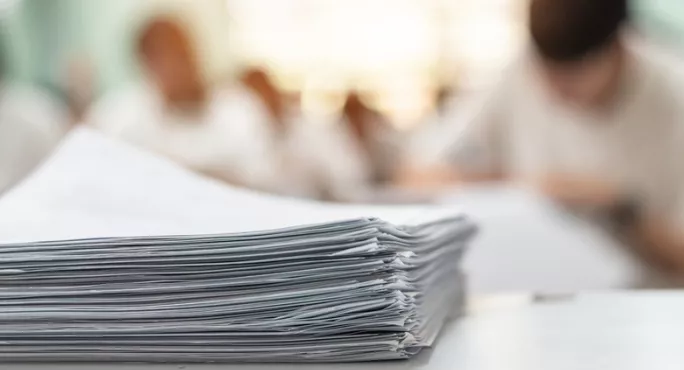Like many exhausted, cold-ridden teachers who find themselves surrounded by mountains of unmarked mock papers, I began to question the point of it all.
The entire Year 11 cohort had taken part in a “walk, talk mock”.
They had been carefully guided through the process of completing an English language reading paper.
Quick read: How I got straight 9s at GCSE
Quick listen: GCSEs: what has been the impact of the shift to linear exams?
Want to know more? Can your pupils ‘catch’ motivation?
Each question had been meticulously broken down into achievable steps with clear examples and set timings for completion.
But since the students had an overwhelming amount of direction and guidance during this mock session, it seemed senseless to endure marking the piles of papers just to see if the students were able to follow the teacher’s simple instructions.
Surely the results would in no way be an accurate representation of what each pupil was actually capable of achieving on their own?
Improving GCSE grades
Yet, as it transpires, the walking, talking mock may actually be the answer to improving exam technique and subsequently our students’ overall GCSE grades.
Even as seasoned professionals, it is sometimes difficult to remember that pressure can do strange things to young people - even the ones that we thought were best equipped to handle to exam stress.
This approach offers our students the opportunity to build up their confidence. After all, practice makes perfect.
Although a walk and talk may not reflect the true experience of a real exam in the same way that other mocks would, it does provide students with the chance to become more accustomed to the process and the exam surroundings.
‘Walk and talk’ mock exams
For many students, their worries stem from having to sit silently in a large hall. By practising in this environment in a supported way, a student’s confidence can often increase as their fears are replaced with familiarity.
Furthermore, these mocks are the epitome of modelling.
Rather than seeing students slump their heads on exam desks after five minutes, there is a sense that passing is possible when they have a clear example of what to do.
Teachers can cover all manner of things during a walk, talk mock session to help guide students to success, such as:
- Finding the focus of the question by highlighting the keywords
- Considering the percentage of marks per question.
- Working on careful time management.
- Understanding the skills and methods required for each question and how to construct a successful answer.
When my students received their results for the mocks, the marks were overwhelmingly positive. This gave them a sense of renewed assurance in their ability.
Now they knew what they were capable of achieving and, through the training and guidance they had received, they would know how to replicate it on their own.
So, are walk talk mocks a valuable use of time? Most definitely.
If students believe in themselves, they are more likely to succeed. Even if it means that we, as teachers, have to wade through some extra marking.
Faye Cargill is an English teacher in Dorset


